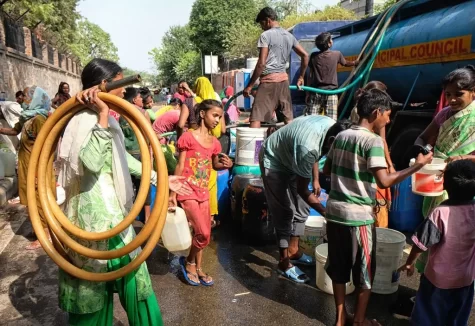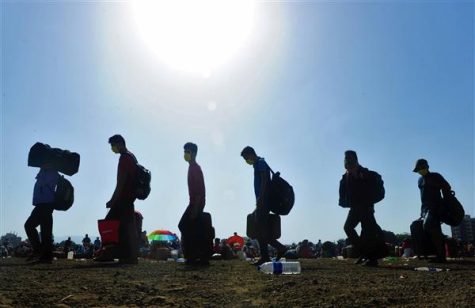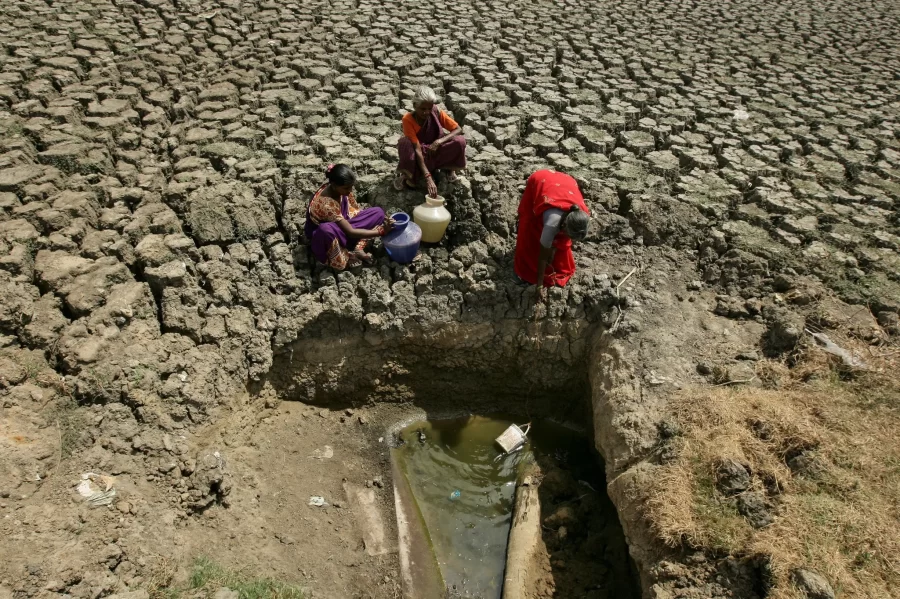Heat Wave in Southern Asia
Dried up lake in Chennai, India.
May 5, 2022
Countries in Southern Asia, India and Pakistan started to reach record heat levels in this past month. This has had detrimental effects on the countries and millions living there. In April the temperature was the highest it has been since the records began, 122 years ago, with an average of 101 degrees Fahrenheit for the month of April (according to the Indian Meteorological Department).
Some states had damaged crops, closed schools, and warned residents to stay hydrated and indoors. In Pakistan, cities hit record highs of about 117 degrees Fahrenheit on Friday, April 29. According to Pakistan’s Meteorological Department, this was the “highest temperature recorded in any city in the Northern Hemisphere on that day.”

Out of both countries, India has been affected the most. Typically, they experience heat waves in the months of May and June but this year it began in March and is continuing into May. Temperatures are expected to improve moderately over the course of this week by a couple degrees.
In Punjab, India, known as a fertile plain of India where many of the agricultural fields lay, the temperature has effected workers and wheat yields. Gurvinder Singh, director of agriculture in Punjab, said, “because of the heatwave we’ve had a loss of more than 5 quintal (500 kilograms) per hectare of our April yield.”
Since workers cannot work in the heat, their families suffer as well because they aren’t able to provide as they did before. Not only that but schools closed as well, West Bengal’s Chief Minister Mamata Banerjee told reporters “children who have to traveled to school, many of them are getting nosebleeds, they can’t tolerate this heatwave.”
Some parts of India have a high demand for electricity, leading to a coal shortage which left millions without power for hours on end, everyday. The country had to cancel over 650 passenger trains in order for more cargo trains to refill coal at power plants.
Singh explained there was no plan they could make for future heat waves, and there is only so much they can do as of right now, which is “testing the limits of human survivability.”















